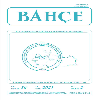Farklı Ekim Zamanlarının Ve Gibberellik Asit’in Campanula glomerata L. subsp. hispida (Witasek) Hayek. Tohumlarının Çıkış Özelliklerine Etkisi
Campanula, dormansi, tohum çıkışı, GA₃, ön uygulama
Effects Of Different Sowing Times And Gibberellic Acid On Emergence Characteristics Of Campanula glomerata L. subsp. hispida (Witasek) Hayek. Seeds
Campanula, dormancy, GA₃, pre–treatment, seed emergence,
___
- Ægisdóttir, H.H. and Thórhallsdóttir, T.E., 2006. Breeding system evolution in the Arctic: a comparative study of Campanula uniflora in Greenland and Iceland. Arctic. Antarctic and Alpine Research 38(3):305–312.
- Alçıtepe, E., 2011. New combinations in Campanula Sect. Quinqueloculares from Turkey. Pakistan Journal of Botaniy 4:2243–2254.
- Baskin, C.C. and Baskin, J.M., 1998. Seeds. Ecology, biogeography and evolution of dormancy and germination. 666p. San Diego: Academic Press.
- Baskin, C.C. and Baskin J.M., 2005. Seed dormancy in wild flower. Flower Seeds: Biology and Technology, (Eds. McDonald, M.B.; Kwong, F.Y.), ISBN:0851999069, 171p., USA.
- Benech–Arnold, R.L., Enciso, S., Sanchez, R.A. and Rodriguez, M.V., 2003. On the hormonal nature of the stimulatory effect of high incubation temperatures on germination of dormant sorghum (S. bicolor) caryopses. New Phytologist 160:371–377.
- Bernini, A., Marconi G. and Polani, F., 2002. Campanule d’Italiae dei territori limitrofi. Verba & Scripta, Pavia, Italy, 20–24 (in Italian).
- Damboldt, J., 1978. Campanula L. In: Davis PH, editor. Flora of Turkey and the East Aegean Islands. Vol.6. Edinburgh, UK: Edinburgh University Press, pp.2–64.
- Davis, P.H., Mill, R.R. and Tan, K., 1988. Campanula L. In: Davis PH, Mill RR, Tan K. (Eds.): Flora of Turkey and the East Aegean Islands (Suppl.1), Vol.10. Edinburgh, UK: Edinburgh University Press, pp.177–180.
- Debeaujon, I. and Koornneef, M., 2000. Gibberellin requirement for Arabidopsis seed germination is determined both by testa characteristics and embryonic Abscisic Acid–Plant Physiol. 122:415–424.
- Duman, İ., Eser, B. ve Yoltaş, T., 1991. Domateste ekim öncesi tohum uygulamalarının çimlenme ve fide çıkısına etkileri. Türkiye 5. Seracılık Sempozyumu, İzmir, 255–266s.
- Duman, İ. ve Eşiyok, D., 1998. Ekim öncesi PEG ve KH₂PO₄ uygulamalarının havuç tohumlarının çimlenme ve çıkış oranı ile verim üzerine etkileri. Turkish Journal of Agriculture and Forestry 22:445–449.
- Geneve, R.L., 1998. Seed dormancy in commercial vegetable and flower species. Seed Technology 20(2):236–250. ISSN: 1096–0724. USA.
- Gülbağ, F. and Özzambak, M.E., 2017. Effect of light, temperature, and different pre–treatments on seed germinatıon of Campanula glomerata L. subsp. hispida (Witasek) Hayek (Campanulaceae). Propagation of Ornamental Plants. 17(4):120–125.
- Koutsovoulou, K. and Thanos, C.A., 2010. Light requirement and skotodormancy in campanulaceae an ecophysiological approach. Proceedings of the Seed Ecology III Conference, June 2010, p:98–99 Salt Lake City, U.S.A.
- Koutsovoulou, K., Daws, M.I. and Thanos, C.A., 2013. Campanulaceae: a family with small seeds that require light for germination. Annals of Botany Page 1 of 9 doi:10.1093/aob/mct250, available online at www.aob.oxfordjournals.org.
- Khansari, E., Zarre, S., Alizadeh, K., Attar, F., Aghabeigi, F. and Salmaki, Y., 2012. Pollen morphology of Campanula (Campanulaceae) and allied genera in Iran with special focus on its systematic implication. Flora 207:203–211.
- Lammers, T.G., 2007. Campanulaceae Jussieu. In: Kadereit, J.W., Jeffrey, C., editors. The families and genera of cascular plants VIII. Asterales. Berlin and Heidelberg, Germany: Springer, 26–57pp.
- Murray, G., 1989. Osmoconditioning carrot seed for improved emergence. Hort. Science 24(4):701.
- Özhatay, N., Kültür, Ş. and Aslan, S., 2009. Check list of additional taxa to the supplement flora of Turkey IV. Turkish Journal of Botany 33:191–226.
- Scariot, V., Seglie, L., Caser, M. and Devecchi, M., 2008. Evaluation of ethylene sensitivity and postharvest treatments to improve the vase life of four Campanula Species. Europ. J. Hort. Sci. 73(4):166–170.
- Yamauchi, Y., Ogawa, N., Kuwahara, A., Hanada, A., Kamiya, Y. and Yamaguchi, S., 2004. Activation of gibberellin biosynthesis and response pathways by low temperature during imbibition of Arabidopsis thaliana seeds. Plant Cell. 16:367–378.
- Yıldırım, H., 2013. Campanula mugeana sp. nov. (Campanulaceae) from western Anatolia, Turkey. Nordic Journal of Botany, 31:419–425.
- Yıldırım, H. and Şenol, S.G., 2014. Campanula alisan–kilincii (Campanulaceae), a new species from eastern Anatolia, Turkey. Turkish Journal of Botany 38(1):22–30.
- Yıldırım, H., Altıoğlu, Y., Gemici, M. and Gül, R., 2016. Two new records and a confirmation for the vascular flora of Turkey. Turkish Journal of Botany 40:676–680
- ISSN: 1300-8943
- Yayın Aralığı: 2
- Başlangıç: 1968
- Yayıncı: Atatürk Bahçe Kültürleri Merkez Araştırma Enstitüsü
Fatih GÜLBAĞ, Mustafa Ercan ÖZZAMBAK
SAKARYA İLİ KOCAALİ İLÇESİ’NDE FAALİYETTE BULUNAN FINDIK İŞLETMELERİNİN MEVCUT YAPISI VE SORUNLARI
Asuman CANSEV, Şule TURHAN, Mustafa TÜCCAR
Asmanın (Vitis spp.) Fungal Hastalıklarla Teşvik Edilen Savunma Mekanizması
Gülhan GÜLBASAR KANDİLLİ, Gökhan SÖYLEMEZOĞLU, Arif ATAK
Elman BAHAR, İlknur KORKUTAL, Hüseyin ÖNER
Sakarya ili Kocaali ilçesinde faaliyette bulunan fındık işletmelerinin mevcut yapısı ve sorunları
Asuman CANSEV, Mustafa TÜCCAR, Şule TURHAN
Mustafa Ercan ÖZZAMBAK, Fatih GÜLBAĞ
Elman BAHAR, İlknur KORKUTAL, Hüseyin ÖNER
ASMANIN (Vitis spp.) FUNGAL HASTALIKLARLA TEŞVİK EDİLEN SAVUNMA MEKANİZMASI
